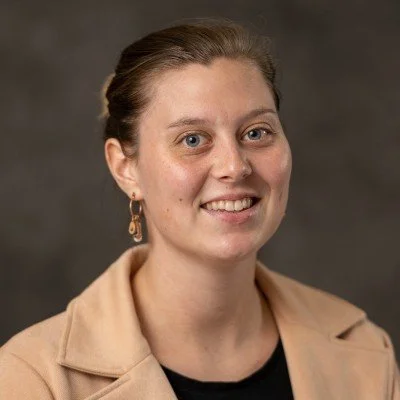From Shelter to Systems Change: Gabrielle Millard’s Survivor-Informed Leadership
At myPlan we know that real change occurs when we listen—truly listen—to survivors and those working alongside survivors of intimate partner violence (IPV) every day.
That’s the heart of our Ask the Expert series: a chance to tell the stories, insights, and hard-won wisdom of people working to combat intimate partner violence in all its forms. In this feature, we hear from Gabrielle Millard, Associate Director at House of Ruth Maryland, whose work is grounded in compassion, persistence, and a profound commitment to the voices of survivors.
From a hotline number tucked in a shoe to policies reshaped by lived experience, Gabrielle shows us what survivor-informed leadership really looks like.
❗️Content Warning: Excerpts from Our Interview with Gabrielle Millard Contain Stories About Intimate Partner Violence
During my first year working at the shelter, I had a client who exited and returned to the program four times. I watched her return more and more physically harmed. I watched her return with a newborn, and watched her baby grow up.
Eventually, after several attempts, she was able to address her trauma symptoms, identify safe and affordable housing, and move out of the shelter into her family’s new, safe home, independent of her abusive partner.
She kept in touch after leaving and she inspired some shifts in our program policies. The feedback from her experience with us led me to start our Resident Advisory Council, a space where residents can reflect directly to shelter leadership. They can share themes, experiences, and recommendations to process and policy for the betterment of the program and client experience.
Who I am
I’m Gabrielle Millard, and I am the Associate Director of Residential Services at House of Ruth Maryland in Baltimore. I oversee our 84-bed shelter, transitional housing program, and temporary hotel program.
I oversee processes including eligibility, screening, placement, and services for survivors of intimate partner violence (IPV). I provide trauma-informed technical assistance and support to the operational and direct service staff.
Outside of work, I like paddleboarding, hiking, walks with dogs, and vacations to the beach!
Why I do this work
I was drawn to the work during my undergraduate experience, when I worked in Guatemala, responding to incidents of femicide of girls and women. I later brought my experiences back to the United States and began responding to IPV on a local level.
The most rewarding and challenging parts of my work
It is so special to see families stabilize and identify safe housing and connect to effective resources and support networks.
It is difficult to be proactive to a 24-hour program, where much of our work is very reactive naturally. It is difficult to encourage staff wellness in a program that can be so draining.
A survivor story I will never forget
A client came to receive food from our food pantry, then eventually began to receive case management and therapy services. The case manager used the myPlan app with the client, who after each visit to our office, returned home with food from the food pantry.
She built out her plan, and between saving her grocery money and some extra hours at work, was able to buy a used car. She saved our Hotline number on a piece of paper in her shoe, and when it was time to flee, was able to call from her car and was accepted into our emergency shelter. Her resilience and planning were key to her being able to flee safely.
What I like about the myPlan App
I like that myPlan offers a space for individuals to identify if they are seeking support for themselves or someone they care about. It is helpful for advocates to use to support folks in identifying abusive behaviors and supporting their loved ones in their next steps. myPlan is a great place for the work to begin.
What I wish people knew about IPV
I wish people knew how difficult it is to leave abusive situations, and how so many survivors have to return to their abuser for their or their loved one's safety. Abuse and danger doesn't stop when someone gets away, and sometimes it takes several tries to flee safely.
Learn more about Gabrielle’s work at:
🔗 House of Ruth Maryland
🔗 Connect with Gabrielle on LinkedIn
Explore the myPlan app:
🔗 myPlanApp.org

